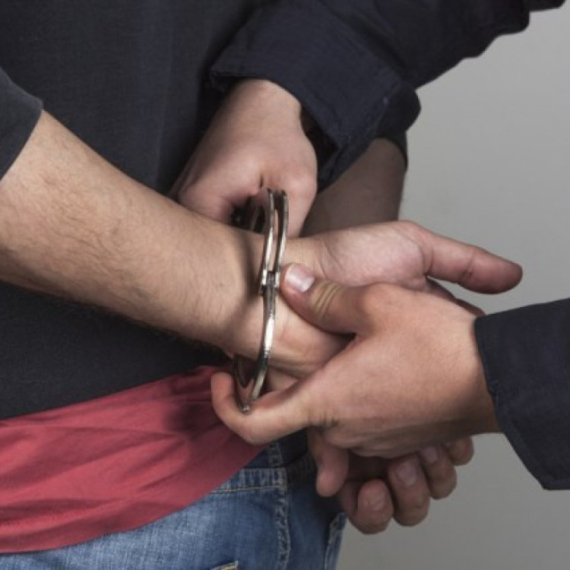"Holland remains unmoved"
Dutch diplomat Henk Jan Ormel says his country continues to oppose the signing of the SAA with Serbia because of incomplete cooperation with the Hague Tribunal.
Tuesday, 22.04.2008.
10:10

Dutch diplomat Henk Jan Ormel says his country continues to oppose the signing of the SAA with Serbia because of incomplete cooperation with the Hague Tribunal. The president of the Dutch parliament’s foreign policy committee is currently on a visit to Belgrade. "Holland remains unmoved" B92 understands that Ormel told Serbian officials yesterday that Holland was taking Belgrade’s arguments into consideration, but for now remained unmoved. Holland is very strongly opposed to the signing of the Stabilization and Association Agreement (SAA) with Serbia because of incomplete cooperation with the Hague Tribunal. Whether Holland will nevertheless drop its present demands will become clear on Thursday, when a session of the Dutch parliament’s foreign policy committee is scheduled. Hague Cooperation Council Chairman Rasim Ljajic said today the chances that the agreement will be signed are very slim. "I can say that these talks are very tough and that the chances to sign the SAA are still very slim. We shouldn't raise the expectations of people, although a chance of some sort still exists," Ljajic said today in Belgrade. Prime Minister Vojislav Kostunica, DSS, who is staunchly opposed to the signing of the deal, reacted today by saying it is "actually irrelevant whether Holland is softening it stance on the SAA signing before May 11". "The real question here is Serbia's position on this agreement, which can in the future be interpreted by NATO as Serbia's signature recognizing Kosovo as the first NATO state," he said. Holland has recognized Kosovo's unilateral independence, Kostunica continued, and in that way violated the initialed SAA "in the crudest manner". His coalition partner, and a minister in the caretaker government, Velimir Ilic, NS, said that even if the agreement were to be signed, "the new parliament will never ratify it". The so-called people's coalition, made up of DSS and NS, believe that the deal will be signed for Easter, but add they do not see it as binding. Some Kosovo Serb leaders have also voiced opposition to President Boris Tadic and his coalition's plans to sign the deal, and announced protests. The issue of the SAA will also most probably be the main topic for discussion at the meeting of EU foreign ministers next week in Luxemburg, where Holland’s position will be crucial in deciding whether that document is ultimately offered to Serbia. Meanwhile, Deputy Prime Minister Bozidar Djelic has said that it will be "a great honor for him to sign the Stabilization and Association Agreement with the European Union if the document is to be offered", but that the chances that this will happen before May 11 are "poor". “It will be a great honor for me to sign the SAA on behalf of our state if the document is to be offered to us, and I will regard this as a supreme act of patriotism,” Djelic said, but added that “there is little chance that the SAA be signed now, before the May 11 elections.” Djelic, who is also an official of the Democratic Party (DS), voiced expectation that by the end of the year, visas would be abolished for the Serbian citizens and the country would be given the status of candidate for EU membership, which, according to him, would also mean "a lot more money" for development, "provided that pro-European forces won at the elections". German Foreign Minister Frank Walter Steinmeier said today the decision on whether to allow the signing of the SAA with Serbia will for the most part depend on a report expected from Chief Hague Prosecutor Serge Brammertz. The German diplomat added there was "general readiness in the EU to support the pro-European forces ahead of the elections", but he added, the Brammertz report will play the crucial role when the decision is made. Steinmeier also said that "the impression at the moment is that the radical forces have greater support from the population than the pro-European ones", and added this was "because of Kosovo". The EU and Germany, he continued, wish to help Kosovo not only establish peace and non-violence, "but also to become a democratic and multiethnic country". In Vienna, Austrian Ambassador to OSCE, and former high representative to Bosnia Wolfgang Petritsch said the signing of the SAA before the parliamentary elections would represent "a boomerang for the EU". "Nationalists would use the document against the democratic forces," he warned in an interview with Austrian news agency APA. "At this moment, the democratic forces in Serbia should not be burdened too much," he said, adding that he believed that the signing of the SAA would "only weaken President Boris Tadic".
"Holland remains unmoved"
B92 understands that Ormel told Serbian officials yesterday that Holland was taking Belgrade’s arguments into consideration, but for now remained unmoved.Holland is very strongly opposed to the signing of the Stabilization and Association Agreement (SAA) with Serbia because of incomplete cooperation with the Hague Tribunal.
Whether Holland will nevertheless drop its present demands will become clear on Thursday, when a session of the Dutch parliament’s foreign policy committee is scheduled.
Hague Cooperation Council Chairman Rasim Ljajić said today the chances that the agreement will be signed are very slim.
"I can say that these talks are very tough and that the chances to sign the SAA are still very slim. We shouldn't raise the expectations of people, although a chance of some sort still exists," Ljajić said today in Belgrade.
Prime Minister Vojislav Koštunica, DSS, who is staunchly opposed to the signing of the deal, reacted today by saying it is "actually irrelevant whether Holland is softening it stance on the SAA signing before May 11".
"The real question here is Serbia's position on this agreement, which can in the future be interpreted by NATO as Serbia's signature recognizing Kosovo as the first NATO state," he said.
Holland has recognized Kosovo's unilateral independence, Koštunica continued, and in that way violated the initialed SAA "in the crudest manner".
His coalition partner, and a minister in the caretaker government, Velimir Ilić, NS, said that even if the agreement were to be signed, "the new parliament will never ratify it".
The so-called people's coalition, made up of DSS and NS, believe that the deal will be signed for Easter, but add they do not see it as binding.
Some Kosovo Serb leaders have also voiced opposition to President Boris Tadić and his coalition's plans to sign the deal, and announced protests.
The issue of the SAA will also most probably be the main topic for discussion at the meeting of EU foreign ministers next week in Luxemburg, where Holland’s position will be crucial in deciding whether that document is ultimately offered to Serbia.
Meanwhile, Deputy Prime Minister Božidar Đelić has said that it will be "a great honor for him to sign the Stabilization and Association Agreement with the European Union if the document is to be offered", but that the chances that this will happen before May 11 are "poor".
“It will be a great honor for me to sign the SAA on behalf of our state if the document is to be offered to us, and I will regard this as a supreme act of patriotism,” Đelić said, but added that “there is little chance that the SAA be signed now, before the May 11 elections.”
Đelić, who is also an official of the Democratic Party (DS), voiced expectation that by the end of the year, visas would be abolished for the Serbian citizens and the country would be given the status of candidate for EU membership, which, according to him, would also mean "a lot more money" for development, "provided that pro-European forces won at the elections".
German Foreign Minister Frank Walter Steinmeier said today the decision on whether to allow the signing of the SAA with Serbia will for the most part depend on a report expected from Chief Hague Prosecutor Serge Brammertz.
The German diplomat added there was "general readiness in the EU to support the pro-European forces ahead of the elections", but he added, the Brammertz report will play the crucial role when the decision is made.
Steinmeier also said that "the impression at the moment is that the radical forces have greater support from the population than the pro-European ones", and added this was "because of Kosovo".
The EU and Germany, he continued, wish to help Kosovo not only establish peace and non-violence, "but also to become a democratic and multiethnic country".
In Vienna, Austrian Ambassador to OSCE, and former high representative to Bosnia Wolfgang Petritsch said the signing of the SAA before the parliamentary elections would represent "a boomerang for the EU".
"Nationalists would use the document against the democratic forces," he warned in an interview with Austrian news agency APA.
"At this moment, the democratic forces in Serbia should not be burdened too much," he said, adding that he believed that the signing of the SAA would "only weaken President Boris Tadić".
















Komentari 34
Pogledaj komentare